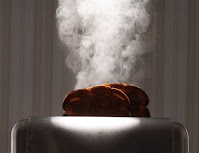“Smell” is an interesting word, isn’t it? It’s one of very few in the English language that’s not only both a noun and a verb, but is also both an action verb—John smells the rose—and a stative verb—The rose smells (sweet to John).
I’m pretty sure every living organism on Planet Earth has some sense of smell. Animals use theirs to find food, sense danger and engage mates. Plants use their version of smell to react with pollinators, size up pests and detect disease in nearby plants.
For us humans, smell may not be quite as vital as that to our day-by-day survival, but if you’ve got a natural gas leak in your house, it just might save your life. And let’s not forget the sense’s aesthetic merit. Flowers, the sea, fresh-brewed coffee and babies’ heads come to mind.
LEATHER IN MY GRENACHE
They say one’s sense of smell fades as one ages. I’m sure that’s true with mine. That’s probably why I’m using more and more seasoning in my food these days. And, though it may be simply a measure of my love, why I can no longer smell my dog’s farts.
But I’ve discovered another aspect to my olfactory perception, one that seems to increase with age. For lack of a better term, I’ll call it phantom smell. That is to say, I’m smelling things that aren’t really there.
 I first noticed it a couple of years ago while I was meditating. I sat down in my favorite chair, leaned back and, because it was daylight, pulled the hood of my sweatshirt down over my eyes to tone down the brightness.
I first noticed it a couple of years ago while I was meditating. I sat down in my favorite chair, leaned back and, because it was daylight, pulled the hood of my sweatshirt down over my eyes to tone down the brightness.
As I followed my breathing into my inner space, I caught these fleeting whiffs of the most intriguing smells. Ebbing and flowing, they often varied with each inhalation. I found them engaging in the most pleasant, evocative way. But evocative of what, I’m not at all sure.
Even trying to describe them makes me think of a genteel oenophile deciphering notes of chocolate or leather in some nice, old Grenache.
It’s funny, I only get these smells when I meditate—with that sweatshirt pulled down over my eyes, collecting and holding, I suppose, whatever combination of real and imaginary smells come to haunt me.
They’re more subtle, like the aroma
of my skin after I sit
in the sun.
NOT MY MUSTACHE
So, what are these smells that come and go, that might morph one into the next with each inhalation? It might be easier to describe what they aren’t. They aren’t floral, nor sweet. They aren’t aromas I’d associate with food.
They’re less common, more subtle, like the aroma of my skin after I sit in the sun; like the not-quite-herbal, not-quite-spice smell of a hot, summer meadow; like the damp, fertile fragrance of deep forest; or the warm, toasty smell of our miniature schnauzer’s feet.

I’m pretty sure there’s nothing around me that actually smells like that. No dog in my lap; no food left on the side table; nothing spilled on the cushions. My mustache has been known to catch and hold the smell of the bacon I had for breakfast, but it isn’t that either.
I realized that I don’t smell anything until I pull that hood down over my eyes and nose. Maybe that’s where the smells were coming from. But no, I washed the sweatshirt and next time the smells were still there.
Oh my God, why are these smells after me?
FANTASTIC PHANTOSMIA
Since the smells aren’t coming from anything around me, I’ve concluded that they must reside in me. Maybe they’re like dreams: you know they’re not real; you may not know what they mean; but you do know they’re based on something you’ve experienced.
There’s a name for this kind of phantom smell: phantosmia. Medical websites say it can have a number of causes: sinusitis, stroke, tumors, schizophrenia, …Oh my God, why are these smells after me?

Most often, phantosmia produces not-so-pleasant smells, like badly burned toast, chemical or metallic odors, rotting flesh…yikes! How fortunate that mine are so congenial. In fact, I actually look forward to that element of my daily meditation, where the smells help me break through my shell of mundane concerns and into a state of dreamy inner-consciousness.
The sense of smell is another of those miracles we become so accustomed to that we may barely notice it. Whether it’s a pleasant waft or a foul reek, whether the source is real or imagined, smell is, indeed, worthy of wonder.
So, have you ever been visited by phantosmia? Does it beguile you or beset you? Won’t you please leave a comment? We’d all love to hear how you smell. 😉






